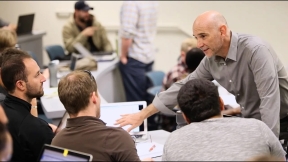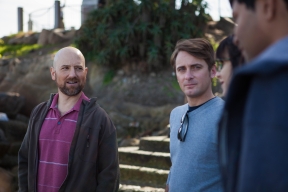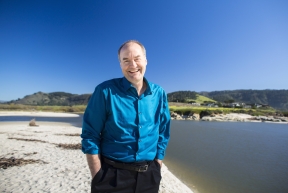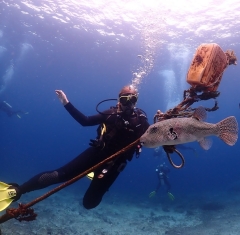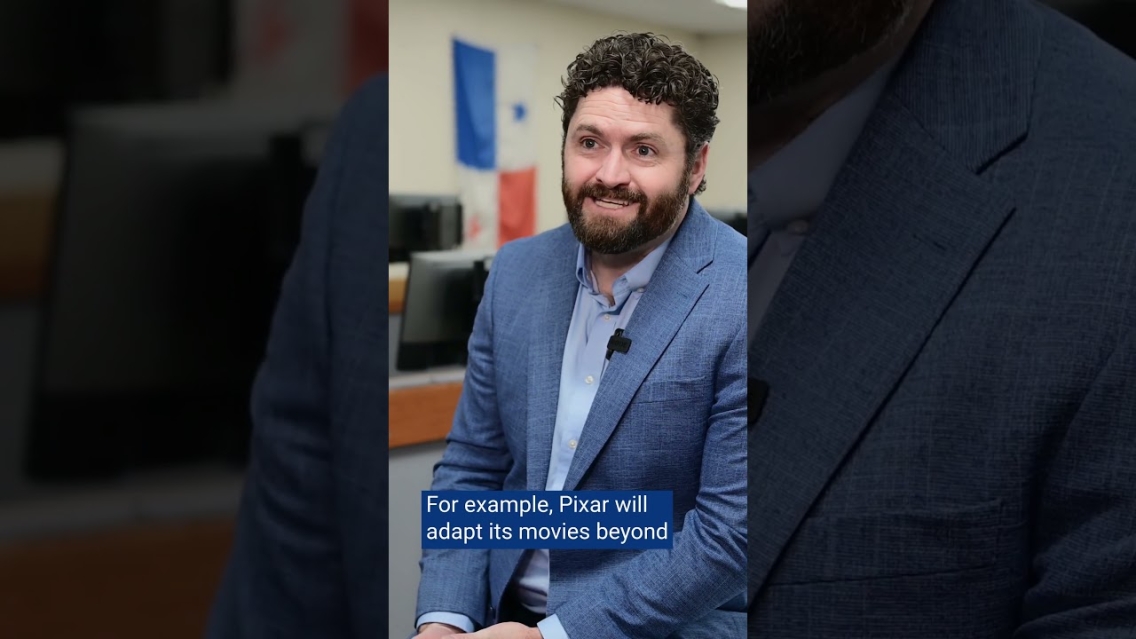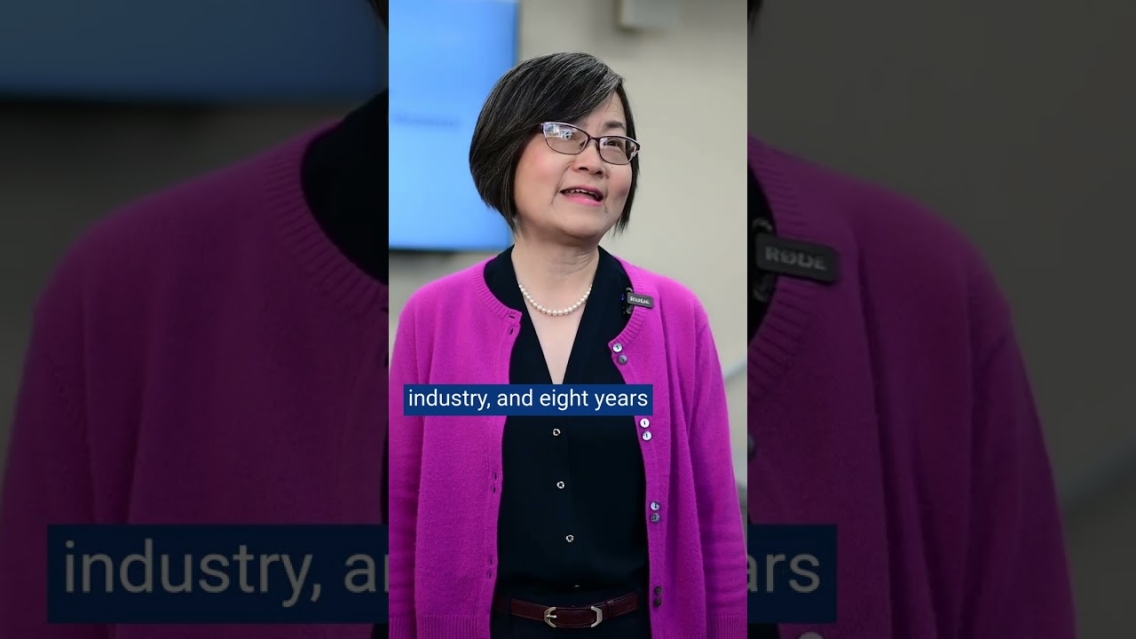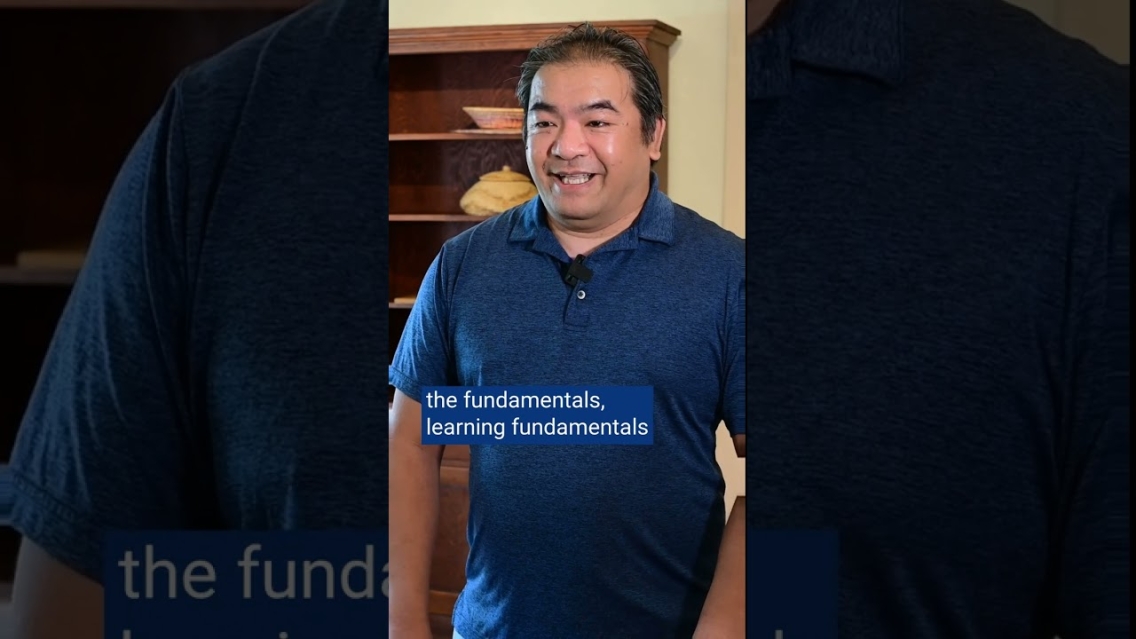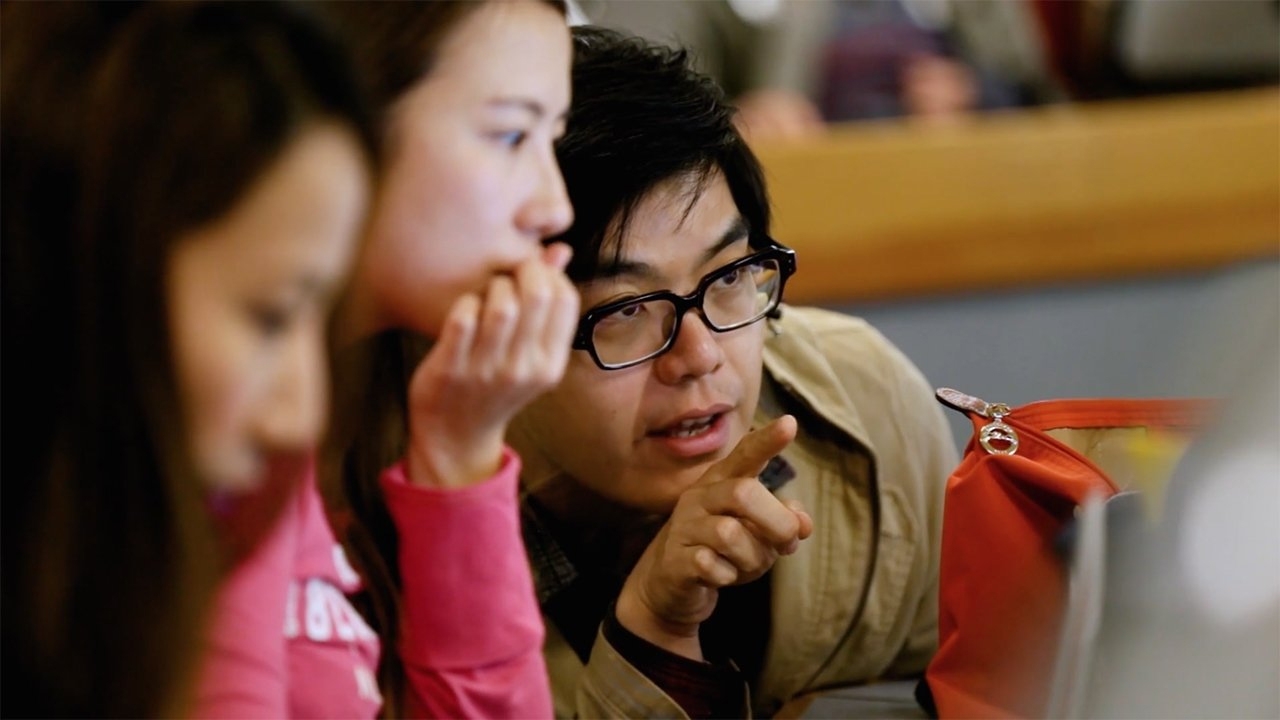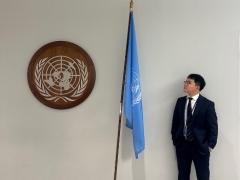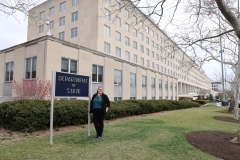Fernando DePaolis teaches Data Analysis, Development Economics, and other advanced quantitative policy analysis courses. He develops research and teaches courses on the problems and solutions at the interface between large bodies of water (oceans and lakes) and urban agglomerations.
Global Management Programs
-
In August 2025, Middlebury’s Board of Trustees decided to close all in-person programs and two online programs at the Middlebury Institute. Fall 2025 was the last intake for the MA in Environmental Policy and Management.
Alternative Programs for Prospective Students
- The Online MPA in Sustainability will continue to enroll students.
- Some of our in-person programs, including our MA in Global Governance and Policy, will enroll new students in spring 2026. Due to course availability, the MA in Environmental Policy and Management is not part of this group.
For Current Students
Our Master of Arts in Environmental Policy and Management prepares you for a rewarding career building climate-resilient, sustainable, and equitable societies. Our model merges graduate coursework with professional experience. The core curriculum provides you with the key social and natural science fundamentals to understand the drivers of environmental change, and how to craft impactful policy solutions.
This is a STEM-designated, four-semester degree.
Transform Your Career
Students build their skills through internships during the school year and summer fellowships with local, national, and international organizations, capped by a professional practicum in their final semester. Through this approach, many of our students secure full-time jobs before graduation.
Career Advising
Your dedicated advisor from the Center for Advising and Career Services will guide you through skills development, interview preparation, networking, career exploration, and professional opportunities aligned with your experience, interests, and goals.
Practical Experience
- You will gain the equivalent of two to four years of professional work experiences to add to your resume during the course of your master’s degree.
- Your faculty will connect you to their vast professional network for internships and other projects.
- Our Center for the Blue Economy (CBE) offers summer fellowships with top marine organizations as well as paid research assistantships.
- Monterey, California, is a center for marine and ocean conservation and policy, including the Monterey Bay Aquarium.
- Nearby Silicon Valley is at the heart of the green tech revolution, and the organic agriculture movement started in Santa Cruz.
- The San Francisco Bay Area has the highest concentration of environmental NGOs anywhere in the world.
- You will put theory into practice through a semester-long practicum in the field.
Internships
We have 80+ employers of our recent interns, and the Institute has partnerships with UNICEF and the GAO for unique opportunities.
Careers
Our graduates find meaningful careers in government, business, and NGOs, including organizations like Oceana, Conservation International, and Microsoft. Many roles in the sustainability industry require a master’s degree, and with a Middlebury Institute master’s, you will be in demand.
Curriculum
Our interdisciplinary curriculum is a mix of core and specialization courses that will prepare you to be a solutions-oriented climate and sustainability leader. Build your expertise in:
- Conservation science and policy
- Environmental economics
- Climate policy and governance
- Data analysis
- Geographic information systems (GIS)
- Social and environmental justice
- Intercultural competence and a second language
You can also focus your coursework on the following specialized areas: sustainability management, natural resource and policy management, and ocean and coastal resource management.
See the curriculum for more details.
Professional Practicum
In your final semester, your studies will culminate in a full-time, semester-long practicum working in the field with an organization. This builds on the other real-world experiences you will have throughout your program. On-the-job supervisors and faculty mentors will work closely with you to make the practicum a bridge to full-time employment. Learn more about your practicum.
60 credits4 semestersFaculty: Professors and Practitioners
While other graduate schools rely on teaching assistants, you will have direct access to our faculty. They’re active, engaged policy professionals who combine academic expertise with years of professional experience in water conservation, food systems, ocean ecosystem management, sustainable development, responsible mining, sustainability investing, “blue” economic development, and more. Our faculty are committed to your success, becoming your mentors and colleagues, and you will work closely with them on real-world consulting projects and research. Meet our faculty.
-
-
Jason Scorse, Director of the Center for the Blue Economy, teaches courses in environmental and natural resource economics, ocean and coastal economics, and behavioral economics. He has consulted for major environmental organizations including the Sierra Club, The Nature Conservancy, Earth Justice, and Oceana
Meet Jason Scorse -
Jeff Langholz is passionate about sustainability of the world’s natural resources. His teaching and research draw from extensive professional experience with the IUCN World Commission on Protected Areas, U.S. Environmental Protection Agency, and consultancies across North America, Latin America, Europe, Asia, and Africa.
Meet Jeff Langholz
Customize Your Environmental Policy and Management Degree
Our flexible curriculum means you can customize your degree:
- STEM designation: expanded career opportunities for international students and scholarships for U.S. students.
- Study a second language and/or intercultural competence.
- Focus your coursework on sustainability management, natural resource policy and management, and/or ocean and coastal resource management.
- A wide range of skill-building course work including quantitative analysis, GIS, communications, negotiations, stakeholder engagement, security, migration studies, and more.
- Accelerated- and advanced-entry: complete your degree in two or three semesters.
- Joint BA/MA: earn a bachelor’s and master’s in just three years through this transfer program.
- Online MPA in Sustainability: if you want to study online, apply to this part-time and asynchronous related program.
- Peace Corps: Coverdell Fellows program for returned volunteers and an option to integrate Peace Corps service for potential volunteers.
Check out the program details for your options.
Center for the Blue Economy
The Middlebury Institute’s Center for the Blue Economy (CBE) is a research and academic center. CBE develops innovative ways to address critical ocean and coastal resource management issues, especially coastal climate adaptation and “blue” economic development. As an Environmental Policy and Management student, you’ll be eligible for a fully funded CBE summer fellowship with top marine organizations, as well as a research assistant position where you can work on cutting-edge research during your studies.
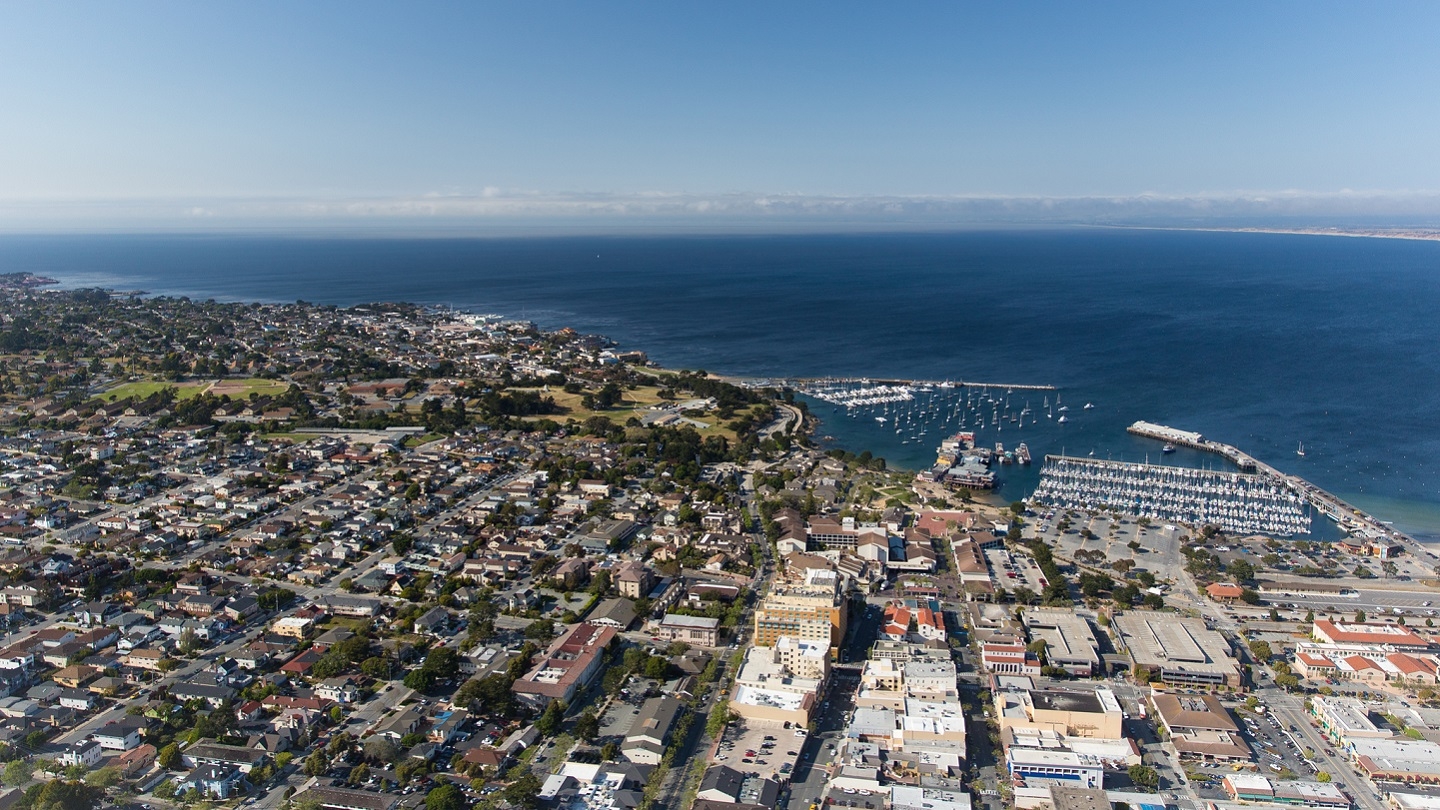
Sustainability Speaker Series
The Sustainability Speaker Series brings creative, pragmatic, and practice-based environmental professionals to campus. Lectures are free and open to the public. The series features some of today’s most influential leaders across a wide variety of fields. See upcoming speakers.
Related Programs
The MA in Environmental Policy and Management is related to several other programs at the Middlebury Institute:
- Introduction to the Blue Economy: Develop a deeper understanding of the blue economy and what it means to our world in this short, online, self-paced course.
- Online MPA in Sustainability: Become an expert in designing, implementing, and managing sustainable solutions for governments, nonprofits, and businesses in this part-time, asynchronous, online degree program.
Featured News
Read AllA Class Assignment Turned into a Published Op-Ed
| by Angela Izi Nkusi
Environmental policy student McKenzie Ploen published a piece sharing her career journey from corporate supply chain management to ocean conservation in SEVENSEAS.
Field Work: Students Bring Complex Community Needs Data to Life in Bilingual Videos
| by Caitlin Fillmore
Students have put their skills to work on a years-long data analysis and marketing project through a partnership between the Institute’s META Lab and the United Way of Monterey County.
Environmental Policy Graduate Student Competes on "Jeopardy!"
| by Caitlin Fillmore
Tune in on May 26 to catch Miles Tepper in action on the legendary quiz show. His tip for aspiring competitors? Get out to local trivia nights here in Monterey!
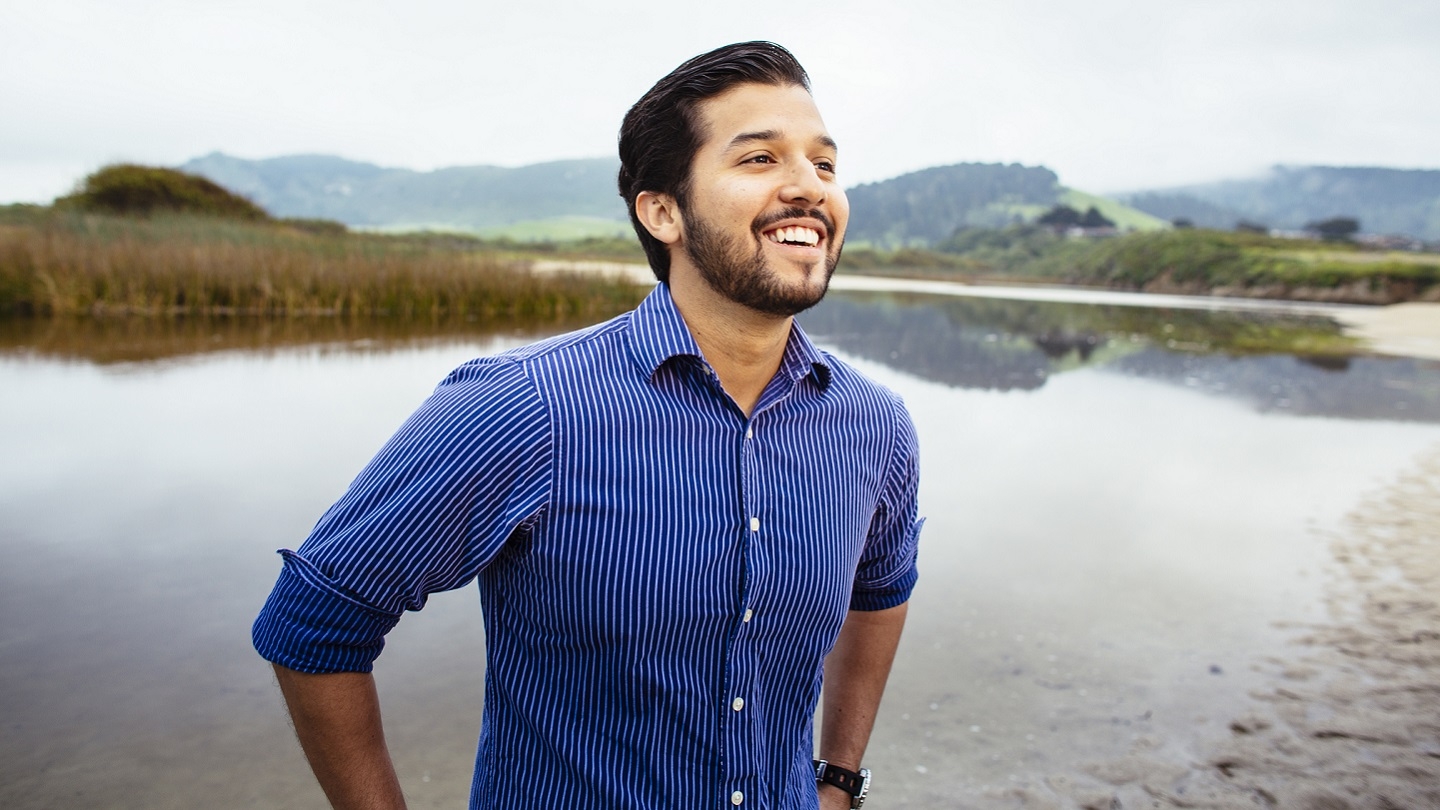
Our graduates find careers designing and implementing sustainable solutions in fields as wide-ranging as conservation, sustainability management, ocean and coastal resource management, and climate policy.
Career Outcomes
- 93%
- employed or continuing education within one year of graduation
- 96%
- secured internships in 2019–2021
- 40+
- different employers of recent graduates
-
Gain your competitive edge in the $70 billion language services industry—launch your career through the first and leading Translation and Localization Management master’s program in the U.S. Spring 2026 Accelerated Entry will be the final intake for this program.
Spring 2026 Final Intake
In August 2025, Middlebury’s Board of Trustees voted to close all in-person programs and two online programs at the Middlebury Institute.
- Fall 2025 was the last intake of two-year students.
- Spring 2026 Accelerated Entry will be the final intake for this program. Review the admission requirements.
- If you want to take translation courses as a student in this program, you must submit the online application by October 15 at the latest, but we strongly encourage you to submit your application as early as possible to give yourself enough time to work on the Language and Skills Test (LST). A few days after you submit the online application, you will receive instructions for the LST. You must submit the LST by October 20.
- Students who start in spring 2026 must take the appropriate number of courses each semester to graduate on time. Learn more about enrolling in spring 2026.
- If you want to receive future communications about application deadlines, scholarships, and other enrollment support, please start a spring 2026 application.
Advanced Entry
Fall 2025 was the last intake of Advanced Entry students. Spring 2026 Accelerated Entry will be the final intake for this program.
Alternative Programs for Prospective Students
- The online MA in Localization Project Management will continue to enroll students.
Degree Program
Our Master of Arts in Translation and Localization Management (TLM) degree prepares you for a career working at the intersection of language, culture, business, AI, and technology. Our graduates work around the world in a range of roles, including as localization program managers and language leads at tech firms like Netflix, Google, and Salesforce, and as project managers at leading translation companies.
Start Term Credits Duration In-Person Fall, (Spring for Accelerated Entry) 60 4 semesters for regular program
3 semesters for Accelerated Entry
2 semesters for Advanced EntryMonterey, California What is Localization?
Localization is the process of adapting the content related to an idea, service, or product to the language and culture of a specific market or region.
AI and Localization
AI is changing the language services industry. Most, if not all job descriptions in the localization industry are being rewritten and expanded to include AI.
From its inception, our program has prepared graduates to leverage new technologies and lead:
- You will learn to incorporate AI into your work, increasing your efficiency and scale.
- You will develop skills that allow you to respond to changes, e.g. hard skills like workflow design and coding, soft skills like adaptability and change management, troubleshooting, and problem-solving.
- You will build a growth mindset allowing you to respond to this change and future changes.
- Our program combines language, culture, business, and technology. The technology may change and the way we translate may change but the fundamental business of the industry remains the same.
What better time to go back to school than now when professionals in the industry are having to learn new skills to keep up with the changes. Our graduates are the leading language experts at the global tech, media, entertainment, gaming, and language service providers. Watch our webinar on Navigating the Growth of AI and Changes to the Language Services Industry.
What is Localization?
Adam Wooten, program director for the MA in Localization Project Management and a professor in the Translation and Localization Management program, describes the basics behind localization.
Launch Your Career
Career and Academic Advising
Your career and academic advising are coordinated, ensuring you align your coursework with your career goals. Our experienced advisors will guide you from course registration to preparing for interviews, negotiating your employment offers, and managing your career.
Location
Our Monterey, California, campus is located in a beautiful, multicultural area that’s home to a high concentration of localization companies. Coupled with our proximity to Silicon Valley, you’ll have extensive opportunities to engage with localization professionals, find internships, and explore full-time employment opportunities.
Language Services Career Fair
Our annual language services career fair, hosted at our Monterey, California campus, attracts dozens of employers—like the MediaLocate and Deluxe Media Inc.—all seeking to hire our students for internships and full-time positions.
Alumni Network
Our large and influential alumni network is eager to help you take the next step in your career. They are thriving in careers around the world. Many top employers seek out our graduates as their go-to hires for localization management talent.
Explore careers in localization
Internship
We have 40+ employers of our recent interns including Salesforce and Welocalize to give you further professional experience before you graduate.
Careers
Employers rely on the Institute as their go-to source for finding localization management talent. Our graduates work with some of the most prestigious organizations around the world.
Curriculum
Build your expertise in:
- Project management
- Multiple computer programming languages
- Media localization
- Finance and marketing
- Data-driven localization
- Translation or second language communication (optional)
- Intercultural competence
Language and Intercultural Competence
You will pick one of three tracks to complete this program. All tracks include intercultural competence. The first two options require differing levels of fluency in a second language. The third track only requires fluency in English.
- Translation
- Become a translator or localization professional with translation or editing responsibilities
- Requires native and near-native fluency in English and a second language (Chinese, French, German, Japanese, Korean, Russian, or Spanish)
- Language Studies
- Use a second language in professional settings
- Requires 300-level or higher proficiency in Arabic, Chinese, English (if not your first language), French, Japanese, Russian, or Spanish.
- Intercultural Competence
- Many technical and management roles in the language services industry only require fluency in English.
- Prepare to work with a diverse range of colleagues, vendors, and clients.
Learn more about your language and intercultural competence options.
Specializations
You can pursue an optional, career-oriented specialization to deepen your expertise in a particular area:
- Creative Media Localization: focus on localizing news and entertainment, including video games, movies, and multimedia.
- Localization Program Management: manage teams and develop business strategy at the program level.
- Language Services Management: oversee large-scale, multilingual projects, ensuring timelines, budget, and quality standards.
4 -semester, 60-credit master’s$70 billion industry (and growing)98% employed within one year of graduationFaculty: Professors and Practitioners
You’ll learn from faculty who combine academic expertise with years of professional experience. They’re active in their respective fields, engaging with industry organizations including, the Globalization and Localization Association (GALA), Nimdzi, LocWorld, the American Translators Association (ATA), TAUS, the Northern California Translators Association (NCTA), the International Federation of Translators (FIT), and Translators Without Borders (TWB).
Together with career advisors, our faculty will be your mentors, ensuring that you receive the academic and professional experience that will help you realize your career goals.
Customize Your Translation and Localization Management Degree
Our flexible curriculum means you can customize your degree:
- STEM designation: expanded career opportunities for international students and scholarships for U.S. students.
- Take translation, language studies, and/or intercultural competence courses, depending on your career goals and proficiency in a second language.
- Pursue an optional, career-oriented specialization.
- Accelerated Entry: Complete your degree in three semesters if you have taken relevant localization coursework
- Advanced Entry: Complete your degree in two semesters if you have relevant work experience.
- Joint degrees: earn two master’s degrees in just four semesters, combining the TLM degree with an MA in Translation, MA in Translation and Interpretation, or an MA in Conference Interpretation.
Check out the program details for your options.
The Business of Language and Technology
TranscriptOne of the things that makes our program very interesting is that we cover so many different topics. And I think that we have probably the most broad curriculum of any localization program in North America, if not the world.
I picked this program because it combines the linguistic aspect with the technical part, and I think that’s very exciting. And this school is one of the only institutions that offer this program. And because I wanna set foot into the localization industry, this was the best choice for me.
Well, my studies here was a mixture of translation, interpretation and localization. And I had a chance to intern at a Stanford hospital. And we got to use advanced tools, computer assisted translation tools, in the field. That’s a very wonderful opportunity that I got.
We have a really close relationship with the localization industry. And we are always interacting with folks in the industry to find out what kind of skills they’re looking for in the people that they hire. And we’re making changes to our courses to respond to their needs.
We need game testers who have the language skills that we need. And then there’s game testing from a localization point of view, where we’re translating our games, and we need to check primarily when text appears on the screen.
Monterey is so close located to the Bay Area, and also the Silicon Valley, which is really great because this gives us an opportunity to attend events in the Silicon Valley. And those are really helpful also to learn about the localization industry. Many, in fact, in not the majority of our students have internships that are ongoing throughout the academic year. There are a few localization agencies right here, in Monterrey, that they work at, and for other agencies, they work remotely. And we’re finding out that agencies are opening up offices here in Monterrey, partially to get access to our students. Here, you will learn the most advanced expertise in this profession because every professor are the most selective ones in the world. And they are also practicing profession as well. They never stop practicing.
It’s so easy to get help from the professors. Even on the weekend when I had some issues with coding, my professor emailed me right back which was really great.
The goal for our graduates is to get them their dream job in the localization industry. And to do that, we’re giving them the skills that employers are looking for
Everything I’ve learned here so far is so relevant. Just meeting people from the localization industry outside of MIIS made me realize that all the skills are really important to know.
If you’ve been looking for a way to use your language skills, and you’d like to learn some business and technology skills as well, then translation and localization management is the perfect program for you.
Related Programs
The MA in Translation and Localization Management is related to several other programs at the Middlebury Institute:
- MA in Translation and Interpretation: Develop key skills both in and out of your A (native) and B (near-native) languages as you work with real-world texts, high-profile events, and live simulations in a variety of fields.
- Joint MA in Translation and Interpretation/Translation and Localization Management: Launch a flexible career in the language services industry with advanced language and technical skills. Earn two master’s degrees in three years. Fall 2025 was the last intake in this program.
- Subtitling for Streaming: Quickly develop your video skills with this online, self-paced course on the fundamentals of professional subtitling.
- Online MA in Localization Project Management: Learn to manage translation and localization projects in this asynchronous, online program.
Scholarships and Financial Aid
More than 95 percent of students who request scholarship consideration receive institutional support. You may receive merit, need-based, partner, and external scholarships and financial aid, which are available to both U.S. and international students.
Your personal enrollment advisor can help you think through financing this important investment in your career development.
How to Apply
We take a holistic approach when considering your application, looking at your academic background, international exposure, professional experience, and career goals. We welcome applicants with or without work experience, and our program has numerous opportunities for you to gain professional experience before you graduate. This approach aligns with the Institute’s core values of diversity, equity, and inclusion.
We do not require GRE or GMAT scores for our master’s programs but competitive scores may strengthen your application and positively influence scholarship decisions.
Learn how to apply and review our Ways to Prepare for Your Program.
Featured News
Read AllFrom Nepal to New York City, Students Complete Practicum Projects This Fall
| by Julia Tucker
Almost 50 Middlebury Institute students are practicum this semester spending their time and gaining invaluable skills in locations all over the globe from Alaska to Kenya.
Field Work: Alum Launches Web Platform to Expand Accessibility in Localization
| by Angela Izi Nkusi
For their practicum, Emilia Primavera developed LinguaInclusa, a web platform with resources for localization teams to make content and products more accessible to people with disabilities.
Field Work: Student Publishes Rising Leaders Handbook with Advice from Localization Leaders
| by Angela Izi Nkusi
For her final graduate research project, Yiqing Lu went beyond consulting the research literature; she interviewed today’s localization leaders, compiling results into a handbook of leadership insights for young professionals.

Our graduates work for private corporations, governments, and nonprofit organizations around the world as employees or freelance consultants.
Career Outcomes
- 98%
- Working within 1 year of graduation
- 56
- Different employers of recent graduates
-
Our MA in International Policy and Development and our online MPA in Sustainability, have replaced the in-person MPA.
While we no longer enroll students in this program, we continue to offer our popular in-person MA in International Policy and Development. This is a great option for prospective students considering the MPA in Social Change as there are many overlapping courses and faculty members, and our graduates have similar career outcomes.
If you need more flexibility, we also offer an online MPA in Sustainability, which allows you to study part-time on an asynchronous schedule and continue to work.
For Current Students
Alumni Network
Our large and influential alumni network in California, Washington, D.C., and other centers of local and global development is eager to help you prepare for your next steps. Our Middlebury in DC office provides the entire Middlebury community with a wealth of resources. Furthermore, our annual Career Exploration Week in the nation’s capital gives you facilitated and direct access to D.C.-based employers and our alumni who help us to plan the event.
Careers
Our graduates are often hired before they complete their program, leveraging real-world projects from their classes, internships, and practica to showcase their relevant professional experience. They are thriving in careers at organizations like the United Nations, Catholic Relief Services, and the U.S. Government Accountability Office.
Explore careers in public administration
Curriculum
Faculty: Professors and Practitioners
While other graduate schools rely on teaching assistants, our students have direct access to our faculty, who combine academic expertise with years of professional experience in major international organizations, including UNCHR (the UN Refugee Agency), USAID, the World Bank, and the U.S. State Department.
Your professors are committed to your success and, together with your career advisor, will become your mentors and colleagues throughout your career.
Program Duration
You can earn your degree in 12 consecutive months, 16 months (three semesters with a summer break), or over four semesters:
- If you are starting the program in the spring, the shortest option available to you is 16 months.
- If you are starting the program in the fall and want to accelerate your return to the workforce and you have professional experience (relevant to your field of interest), consider the 12-month option, which includes a January term and summer semester.
- If you need to gain work experience while you earn your degree, consider the 16-month option, which takes longer but leaves the January term and/or summer open for internships or other experiential learning opportunities.
- If you want to craft a niche career, you can add a specialization or a second master’s degree in our carefully designed joint master’s degrees. This will take up to four semesters for you to complete.
- If you would prefer or need to spend more time in your program for any reason, we encourage you to add a specialization or pursue a joint master’s degree program for a four-semester program.
You only need to finalize a decision on which path to pursue after you have enrolled—your career and academic advisor will help you make this choice.
Practicum Options
Your final semester practicum can be completed remotely allowing you to transition to your preferred location before you graduate and gain professional experience in a context that closely aligns with your career goals.
Featured News
Read AllFrom Nepal to New York City, Students Complete Practicum Projects This Fall
| by Julia Tucker
Almost 50 Middlebury Institute students are practicum this semester spending their time and gaining invaluable skills in locations all over the globe from Alaska to Kenya.
From Kenya to Alaska, Students Are Addressing Pressing Global Challenges
| by Marissa Gonzalez
Almost 50 Middlebury Institute students are practicum this semester spending their time and gaining invaluable skills in locations all over the globe from Alaska to Kenya.
Alumni Mentor Students as They Prepare to Launch Their Careers
| by Jason Warburg
The Middlebury Institute’s alumni mentor program matches current students with alumni offering guidance and recommendations about potential career pathways.

